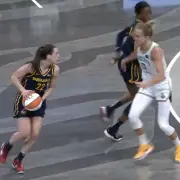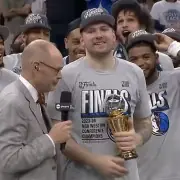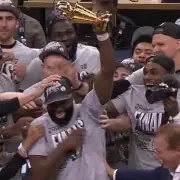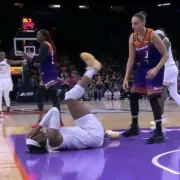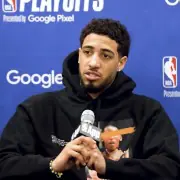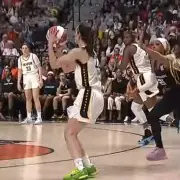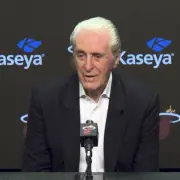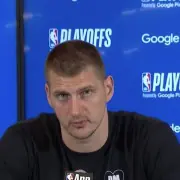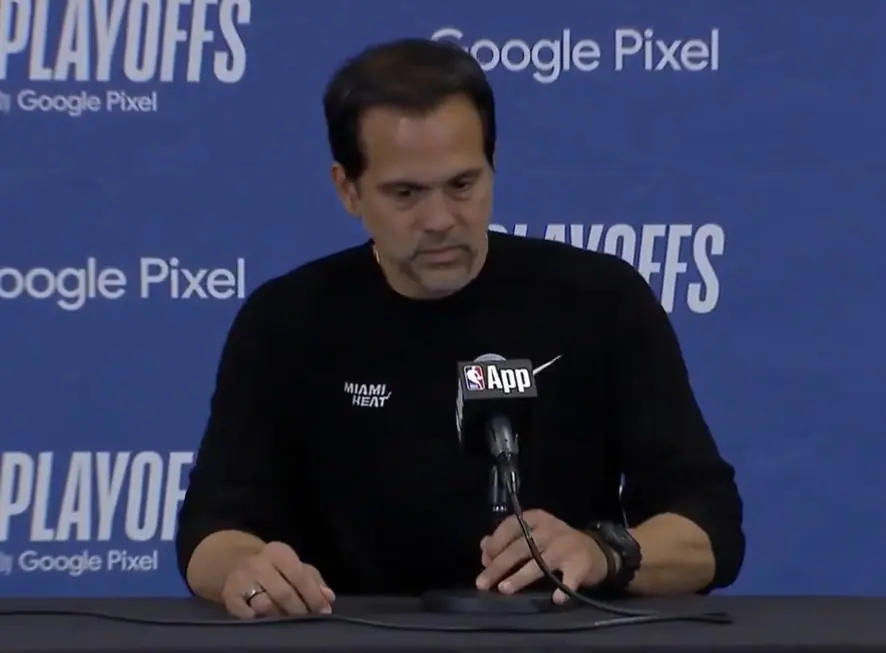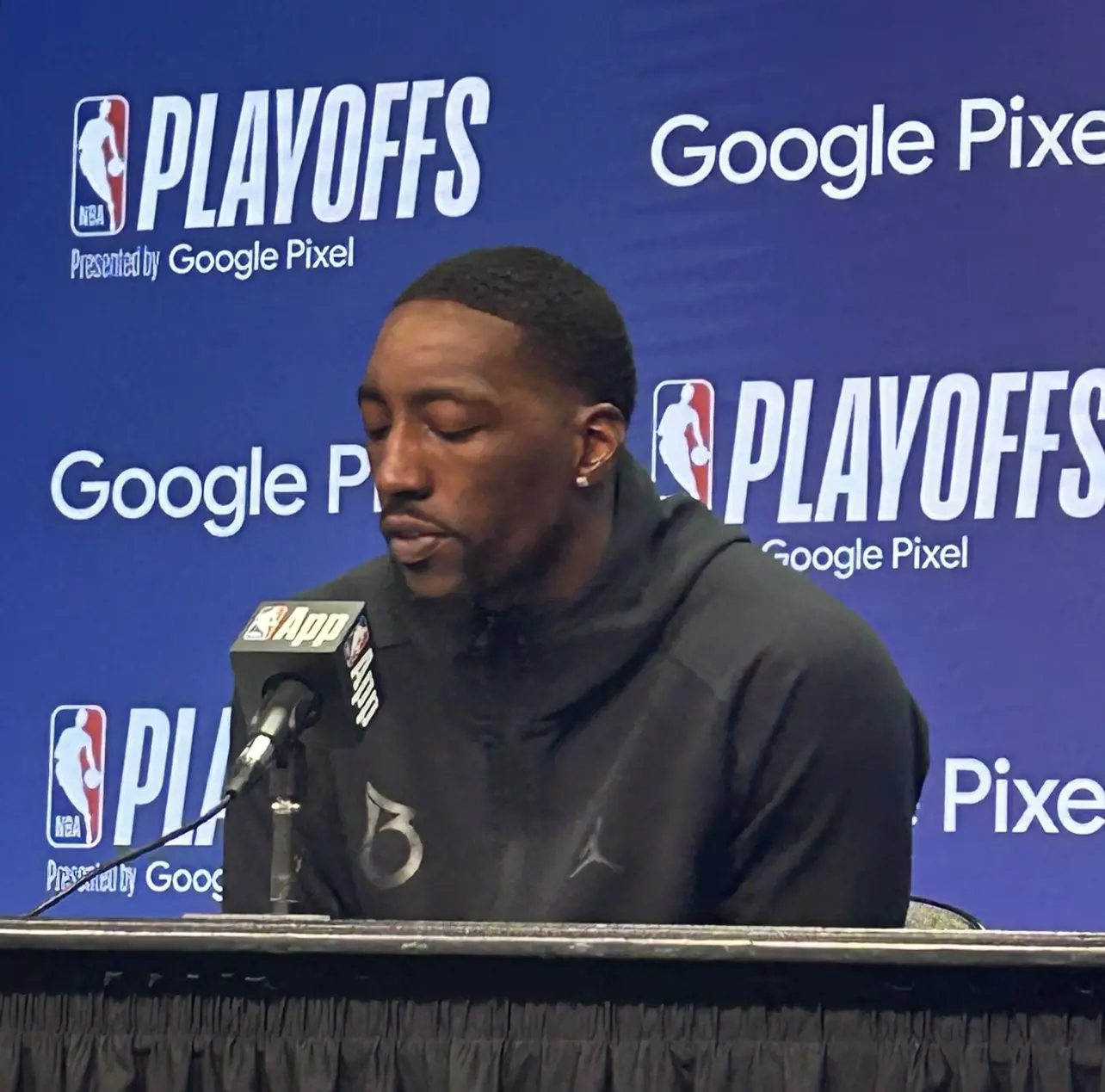Mateo’s Hoop Diary: Indiana Fever early season observations
The Indiana Fever are a rebuilding outfit with nice pieces, but they have been a major disappointment for a quarter of the season. The effort on defense is not adequate. Caitlin Clark’s teammates have not reached the same court wavelength as her. Players miss open looks. The bench is inefficient, logging 16.1 points on 39.6% shooting per game. And Aliyah Boston, last campaign’s top rookie, hasn’t been herself.
But they have the tools to change the narrative.
Let’s review the story through approximately 28% of the season…
The defense isn’t sharp:
The Fever are last in the WNBA in defensive rating (111.8), eleventh in opponent paint marks (38.2) and concede the third-most second-chance points (14.5).
One of the weakest areas of protection is the 3-point line because defenders overreact to a pass or drive and don’t guard snipers closely enough.
Kristy Wallace and Aliyah Boston have been terrible:
Wallace has wasted open looks. But more concerning is Boston being a shell of the powerhouse she was last season.
Boston is recording 4.5 attempts in the restricted area yet converting 49% of tries. In 2023, she shot 5.9 times at zero to three feet, making 65.8% nightly.
Boston hasn’t looked as fluid around the paint, is fouling slightly more than last season and she is recovering two fewer rebounds. As a result, she’s had her minutes slightly gashed (3.5).
When Boston rediscovers her game, the Fever will have an easier time scoring in the half court.
Kelsey Mitchell’s impact is greater than her field goal percentage:
Mitchell is logging decent numbers on an inefficient field goal percentage- 15.1 points on 37.8% shooting, with 1.4 rebounds and 1.9 assists – but this production doesn’t do her justice. She is the second-best option the Fever has off the dribble and no.2 in dependability this season.
Additionally, Mitchell is second in the WNBA in fast break points (31), catching passes from Kristy Wallace, Erica Wheeler, Temi Fagbenle, Katie Lou Samuelson, Boston, and Clark in the open court. Some of the Fever’s best offense is outletting to Mitchell.
In the half court, she works well getting open off-ball on cuts and has an explosive first step with the rock.
Considering how Clark is relentlessly blitzed up top, the Fever should consider running more pick-and-roll sets with Mitchell as her screener. Despite Mitchell shooting 31.8% from long range, she’ll have quality looks because of Clark’s gravity for a jumper, or she can use the space to get to the rim.
Mitchell is also ninth in marks off turnovers (33).
NaLyssa Smith’s strong play:
Smith had some tough outings to start the year but elevated her game. She is the Fever’s top rebounder (7.1) plus the leader in efficiency, and she is a developing shooter, making 57.1% of above-the-break triples on 1.3 attempts per game.
Smith had her best showing of the season in the Fever’s win over the Sky in the first Commissioner’s Cup game, putting up 17 points on seven of 12 looks, with nine rebounds, three assists, two steals and one block. The next night, she and Mitchell, again, were the Fever’s strongest performers despite getting blown out by the Liberty.
Clark is LEGIT
Clark’s been plagued by inefficiency- averaging 15.6 points on 35.7% accuracy, including 29.7% from deep, with 5.1 rebounds and 6.4 dimes- but she catches a high volume of defensive schemes. To boot, she is eighth in usage percentage, counting players who have registered at least six matches.
Being a deep threat is a large part of her game, as 63.6% of her shots are from behind the arc. But some of the trifectas she hoists are tough off the dribble. For example, unsuccessfully shooting over DiJonai Carrington and Moriah Jefferson from the logo against the Connecticut Sun, bricking a pull-up three with Carrington all over her, and misfiring a step back, facing the New York Liberty’s Sabrina Ionescu, who stuck close to her.
Yet, of her 27 made threes, 18 have been off the dribble, and nine were catch-and-shoot. Clark likes to stop on a dime and fire, but her team needs to look for more ways to get her open off-ball through staggers, flares and misdirection.
Her other correctable problem so far has been that she is a turnover machine. She makes bold passes in the open court, but some are picked off, and blitzes have given her trouble.
Her top strength is her vision. Even when she shoots poorly, CC impacts the game as a playmaker or decoy.
